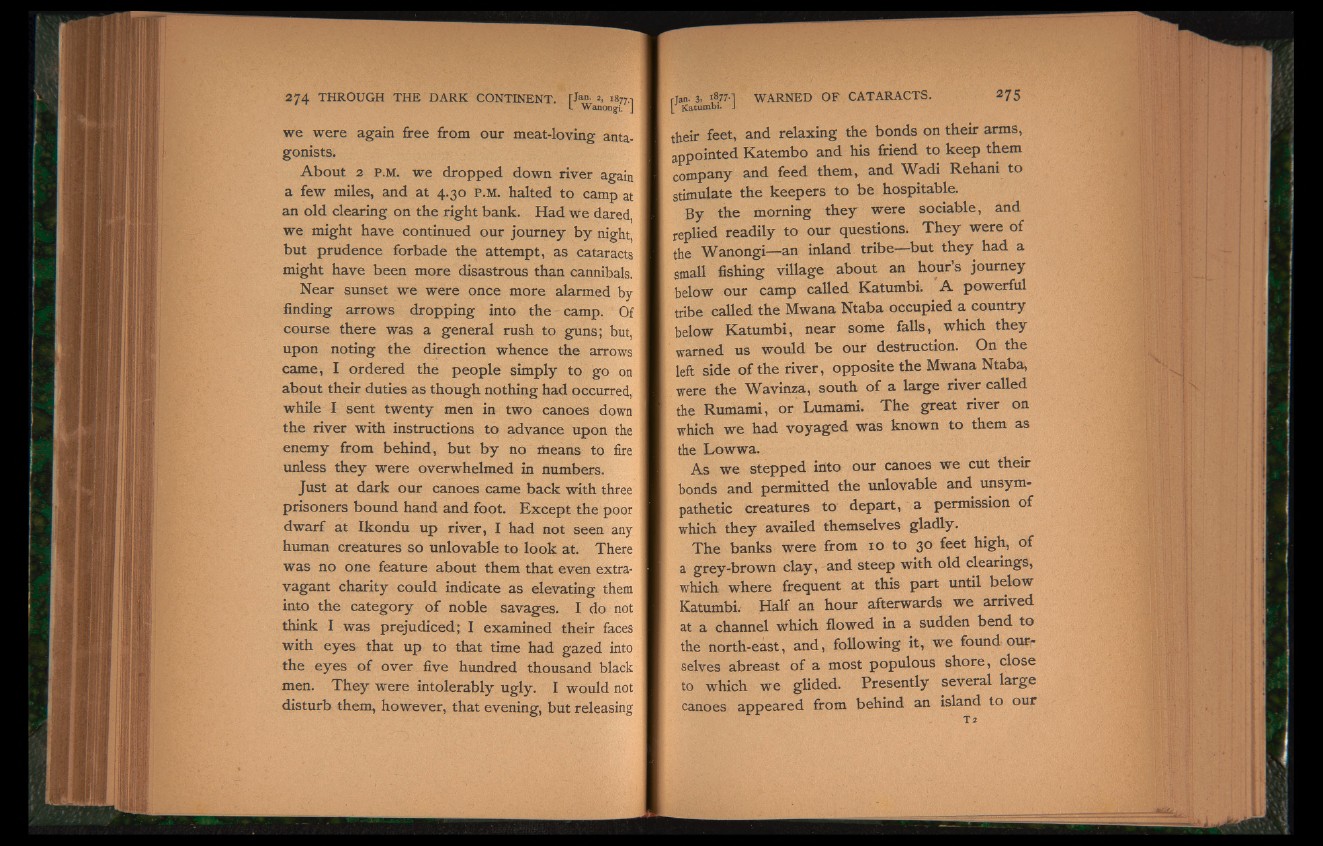
we were again free from our meat-loving antagonists.
About 2 p.m. we dropped down river again
a few miles, and at 4.30 P.M. halted to camp at
an old clearing on the right bank. Had we dared,
we might have continued our journey by night,
but prudence forbade the attempt, as cataracts
might have been more disastrous than cannibals.
Near sunset we were once more alarmed by-
finding arrows dropping into the camp. Of
course there was a general rush to guns; but,
upon noting the direction whence the arrows
came, I ordered the people simply to go on
about their duties as though nothing had occurred,
while I sent twenty men in two canoes down
the river with instructions to advance upon the
enemy from behind, but by no iheans to fire
unless they were overwhelmed in numbers.
Just at dark our canoes came back with three
prisoners bound hand and foot. Except the poor
dwarf at Ikondu up river, I had not seen any
human creatures so unlovable to look at. There
was no one feature about them that even extravagant
charity could indicate as elevating them
into the category of noble savages. I do not
think I was prejudiced; I examined their faces
with eyes that up to that time had gazed into
the eyes of over five hundred thousand black
men. They were intolerably ugly. I would not
disturb them, however, that evening, but releasing
rian. 3. i877-] WARNED OF CATARACTS. 275
[ Katumbi. J
their feet, and relaxing the bonds on their arms,
appointed Katembo and his friend to keep them
company and feed them, and Wadi Rehani to
stimulate the keepers to be hospitable.
By the morning they were sociable, and
replied readily to our questions. They were of
the Wanongi— an inland tribe—but they had a
small fishing village about an hours journey
below our camp called Katumbi. A powerful
tribe called the Mwana Ntaba occupied a country
below Katumbi, near some falls, which they
warned us would be our destruction. On the
left side of the river, opposite the Mwana Ntaba,
were the Wavinza, south of a large river called
the Rumami, or Lumami. The great river on
which we had voyaged was known to them as
the Lowwa.
As we stepped into our canoes we cut their
bonds and permitted the unlovable and unsympathetic
creatures to depart, a permission of
which they availed themselves gladly.
The banks were from 10 to 30 feet high, of
a, grey-brown clay, and steep with old clearings,
which where frequent at this part until below
Katumbi. Half an hour afterwards we arrived
at a channel which flowed in a sudden bend to
the north-east, and, following it, we found ourselves
abreast of a most populous shore, close
to which we glided. Presently several large
canoes appeared from behind an island to our